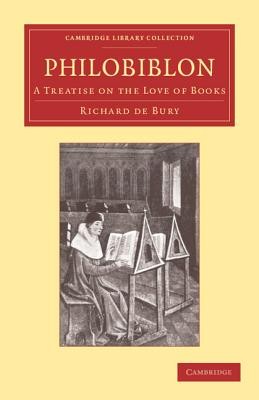
- We will send in 10–14 business days.
- Author: Richard de Bury
- Publisher: Cambridge University Press
- ISBN-10: 1108061435
- ISBN-13: 9781108061438
- Format: 14 x 21.6 x 1 cm, minkšti viršeliai
- Language: English
- SAVE -10% with code: EXTRA
Reviews
Description
Distinguished above all for his zeal for learning, Richard de Bury (1287-1345) was an influential figure during the reign of Edward III, becoming bishop of Durham and serving on several diplomatic missions abroad, during which time he accumulated many rare works. The Philobiblon is his passionate treatise on learning and book collecting. Lodging a complaint in the voice of books themselves, Richard expresses his frank views on the current state of learning and scholarly practice. This translation, the first such into English, was prepared anonymously in 1832 by the scholar and linguist John Bellingham Inglis (1780-1870). Unlike other book collectors, Inglis was noted for actually having read the books he acquired. The present work contains a brief preface discussing previous scholarship and editions of the text, and ends with extensive notes by Inglis on the original text and his editorial decisions.
EXTRA 10 % discount with code: EXTRA
The promotion ends in 21d.17:35:28
The discount code is valid when purchasing from 10 €. Discounts do not stack.
- Author: Richard de Bury
- Publisher: Cambridge University Press
- ISBN-10: 1108061435
- ISBN-13: 9781108061438
- Format: 14 x 21.6 x 1 cm, minkšti viršeliai
- Language: English English
Distinguished above all for his zeal for learning, Richard de Bury (1287-1345) was an influential figure during the reign of Edward III, becoming bishop of Durham and serving on several diplomatic missions abroad, during which time he accumulated many rare works. The Philobiblon is his passionate treatise on learning and book collecting. Lodging a complaint in the voice of books themselves, Richard expresses his frank views on the current state of learning and scholarly practice. This translation, the first such into English, was prepared anonymously in 1832 by the scholar and linguist John Bellingham Inglis (1780-1870). Unlike other book collectors, Inglis was noted for actually having read the books he acquired. The present work contains a brief preface discussing previous scholarship and editions of the text, and ends with extensive notes by Inglis on the original text and his editorial decisions.


Reviews